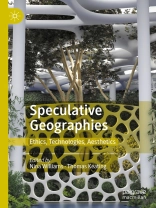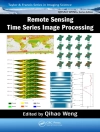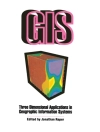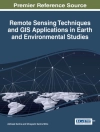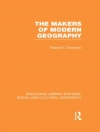This book explores how speculative thinking is shaping how we relate to our entangled social, mental, and environmental ecologies. It examines how speculative philosophies and concepts are changing geographical research methods and techniques, whilst also developing how speculative thinking transforms the way human, non-human, and more-than-human things are conceptualised in research practices across the social sciences, arts, and humanities. Offering the first dedicated compendium of geographical engagements with speculation and speculative thinking, the chapters in this edited collection advance debates about how affective, imperceptible, and infra-sensible qualities of environments might be written about through alternative registers and ontologies of experience. Organised around the themes of Ethics, Technologies, and Aesthetics, the book will appeal to those engaging with architecture, Black political theory, fiction, cinema, children’s geographies, biotechnologies, philosophy, rural studies, arts practice, and nuclear waste studies as speculative research practices appropriate for addressing contemporary ecological problems.
Chapters 1, 3 and 4 are available open access under a Creative Commons Attribution 4.0 International License via link.springer.com.
İçerik tablosu
1. From Abstract Thinking to Thinking Abstractions: Introducing Speculative Geographies by Nina Williams and Thomas Keating.- 2. Redreaming the Human and the Ethics of Terraformation by Jayna Brown.- 3. Contemporary Urban Heterotopias: from Fiction to Reality by Olivier Costaftis.- 4. Speculations on Time and Space: or Zeno’s Last Stand by Marcus A. Doel and David B. Clarke.- 5. Passionate Speculations | Speculative Passions by Joe Gerlach.- 6. Three Speculative Dispositions after William James: Towards a concept of Pre-cursive faith by Carlota de La Herrán Iriarte.- 7. Tearing through the curtain: imagining new horizons of possibility through deterritorialization by Kieran Cutting.- 8. Speculative Reproduction by Maria Fannin.- 9. Neo Rural Futures – speculative modes of thinking, sensing, and creating sustainable futures by Vera Fearns.- 10. Foley and Fabulation: the production of screams, sound, and subjectivity in Peter Strickland’s Berberian Sound Studio by Tara Elisabeth Jeyasingh.- 11. Nuclear Remains: for a speculative empirical approach by Thomas Keating.- 12. Speculating with, and after, plastics and childhoods by Peter Kraftl.- 13. Against the Cynicism of Common Sense: Guattari and the micropolitics of expression by George Burdon.- 14. The ecosophic act of feeling: Poetry, animism and speculative thought by Oliver Dawson.- 15. Flights of Fancy: speculative taxidermy as pedagogical practice by Merle Patchett.- 16. Becoming Listening Bodies by David Rousell, Michael Gallagher, Mark. P Wright.- 17. Dust and soil: speculative approaches to microecological sensing Rachael Wakefield-Rann & Thomas Lee.- 18. Afterword: Speculative Earth by Martin Savransky.
Yazar hakkında
Nina Williams is Lecturer in Cultural Geography at UNSW Canberra, Australia. Nina’s research explores conceptual innovations in the fields of nonrepresentational theory, process philosophy speculative thinking and post-humanism. A central pursuit in Nina’s research is to amplify aesthetics and creativity as salient modes of sensing and engaging geographic work.
Thomas Keating is a researcher in Technology and Social Change at Linköping University, Sweden. Thomas’ research engages with problems posed by human-technology relationships. He has published on Gilbert Simondon (Cultural Geographies), post-humanism (Transactions of the Institute of British Geographers), and speculative empiricism with Didier Debaise (Theory, Culture & Society).
